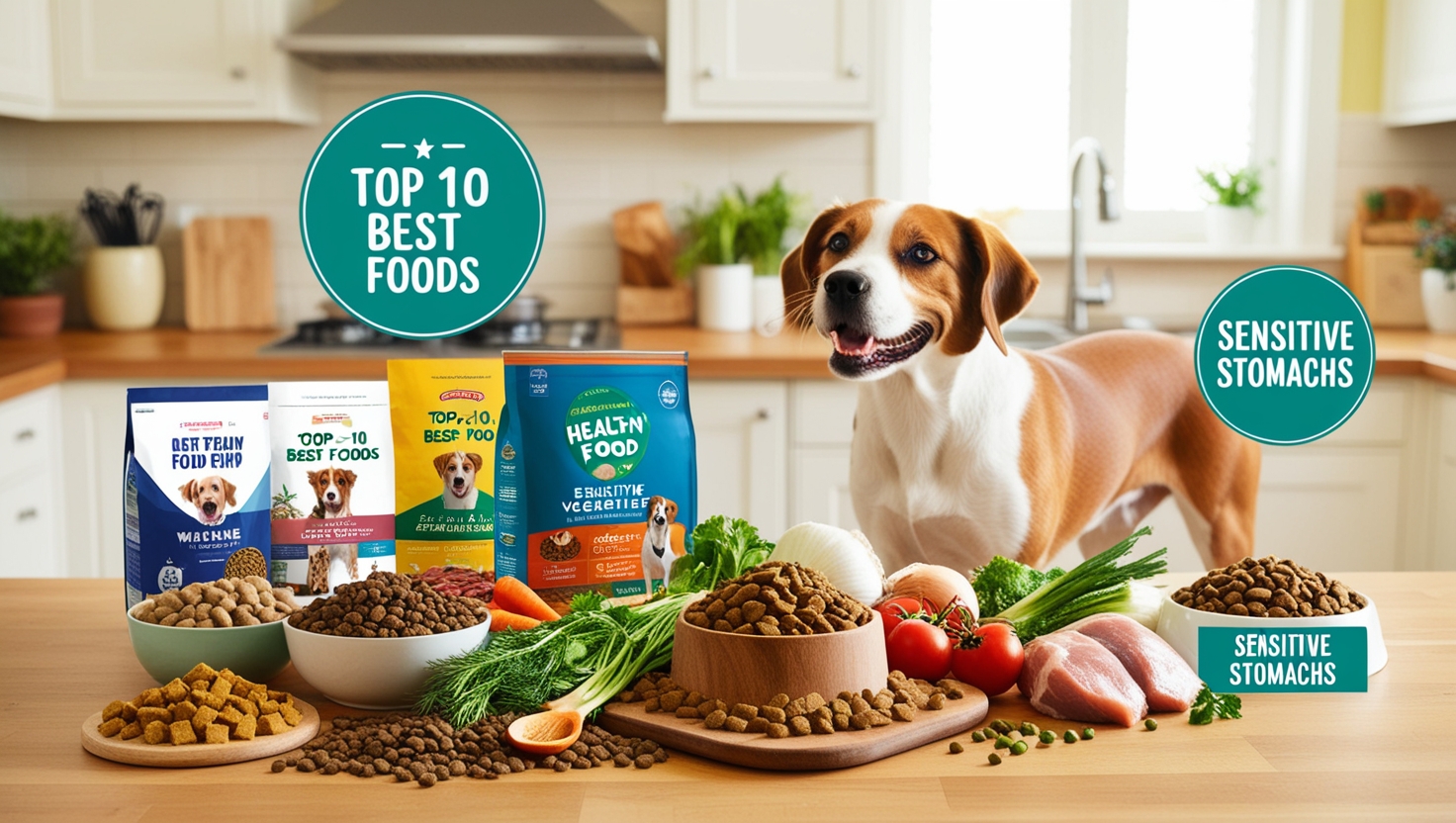
When it comes to our furry friends, their health and happiness are always a top priority—especially for those pups with sensitive stomachs. Just like us, dogs can experience tummy troubles that leave them feeling uncomfortable and out of sorts. But fear not! The best food for dogs with sensitive stomachs can make all the difference in keeping their bellies happy and healthy. In this comprehensive guide, we’ll explore the top 10 gentle foods specifically designed for dogs with delicate digestions. From soothing ingredients to easy-to-digest options, these selections will help your canine companion feel their best while still enjoying mealtime.
Understanding Sensitive Stomachs in Dogs
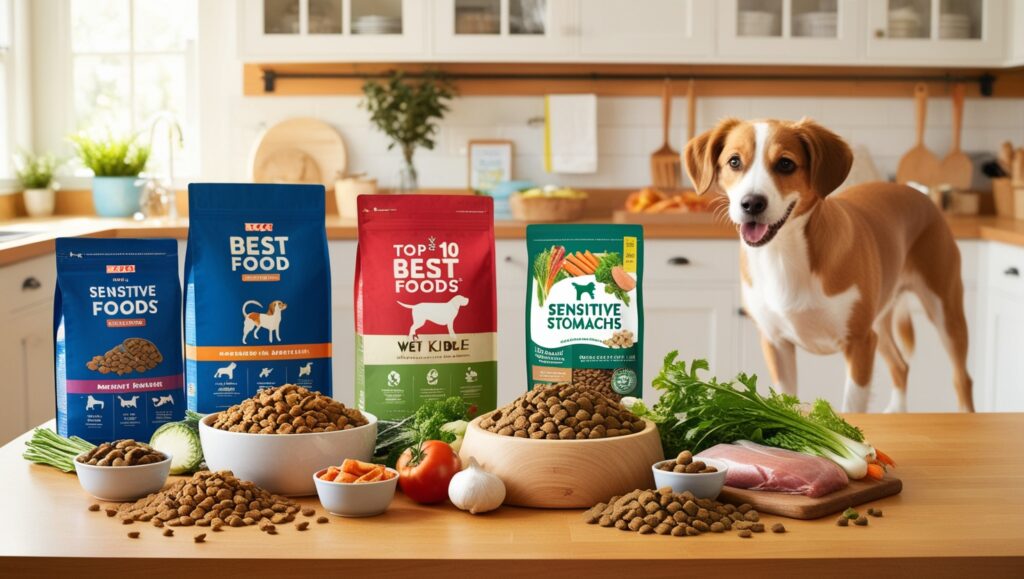
Dogs can be notorious for eating just about anything they come across, from grass and dirt to socks and shoes. But some dogs may have a more delicate digestive system than others, leading to issues such as vomiting, diarrhea, bloating, and gas. These symptoms can be indicative of a sensitive stomach in dogs. Understanding what causes a sensitive stomach in dogs and how to manage it can help you keep your furry friend happy and healthy.
Common Causes of Sensitive Stomachs in Dogs
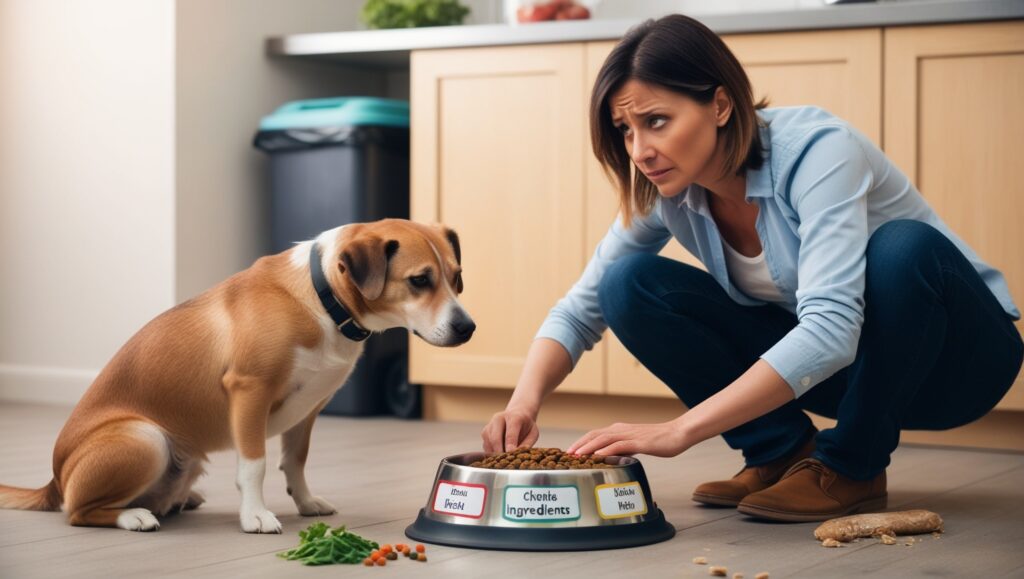
Sensitive stomachs in dogs can stem from various factors. Food allergies often top the list, where certain ingredients trigger discomfort or gastrointestinal upset. Another common cause is dietary indiscretion. Dogs are notorious for scavenging and eating things they shouldn’t. This behavior can lead to an irritated stomach and digestive issues.
Stress also plays a significant role. Just like humans, dogs may experience anxiety that affects their digestion. Changes in routine or environment can contribute to this stress-related sensitivity. Underlying health conditions should not be overlooked either. Issues such as pancreatitis or infections might manifest through digestive distress. Lastly, age can influence a dog’s digestive resilience. Senior dogs often have more sensitive stomachs due to slower metabolism and changes in gut flora.
Recognizing these causes helps pet owners make informed decisions about the best food for dogs with sensitive stomachs and their overall care.
Top 10 Best Food for Dogs with Sensitive Stomachs
When it comes to choosing the best food for dogs with sensitive stomachs, selecting gentle options is crucial. These foods can provide comfort and ease digestion.

- Plain Boiled Chicken: It’s lean and easily digestible, making it a favorite among many pups.
- Sweet Potatoes: Packed with fiber and vitamins, they’re gentle on the tummy and can soothe discomfort effectively.
- Pumpkin Puree: Offers digestive benefits with its high moisture content.
- Brown Rice: Acts as a bland carbohydrate that helps firm up stools without causing irritation.
- Cottage Cheese: Provides protein along with easy-to-digest dairy fats that some dogs handle well.
- Oatmeal: Rich in soluble fiber, aids digestion while providing energy.
- Fish (Salmon or Whitefish): Excellent sources of omega-3 fatty acids promoting skin health alongside their mild flavor profile.
- Chicken Broth: Serves as a delicious supplement—hydrating yet soothing during mealtime transitions.
Each of these options is considered among the best food for dogs with sensitive stomachs, providing nutrients without upsetting their delicate digestion.
Transitioning your dog to a new diet requires patience and care. Start slowly, mixing the new food with their current one. A ratio of 75% old food to 25% new is ideal for the first few days. Gradually increase the amount of new food while decreasing the old over about a week. This method allows your dog’s digestive system to adjust without causing discomfort. Pay attention to any signs of distress or allergy during this transition period. If you notice vomiting or diarrhea, slow down the process or consult your veterinarian.
Keep mealtime consistent by serving at regular intervals each day. This routine helps establish positive associations with their new diet, especially when it involves the best food for dogs with sensitive stomachs.
Homemade vs. Commercial Dog Food for Sensitive Stomachs
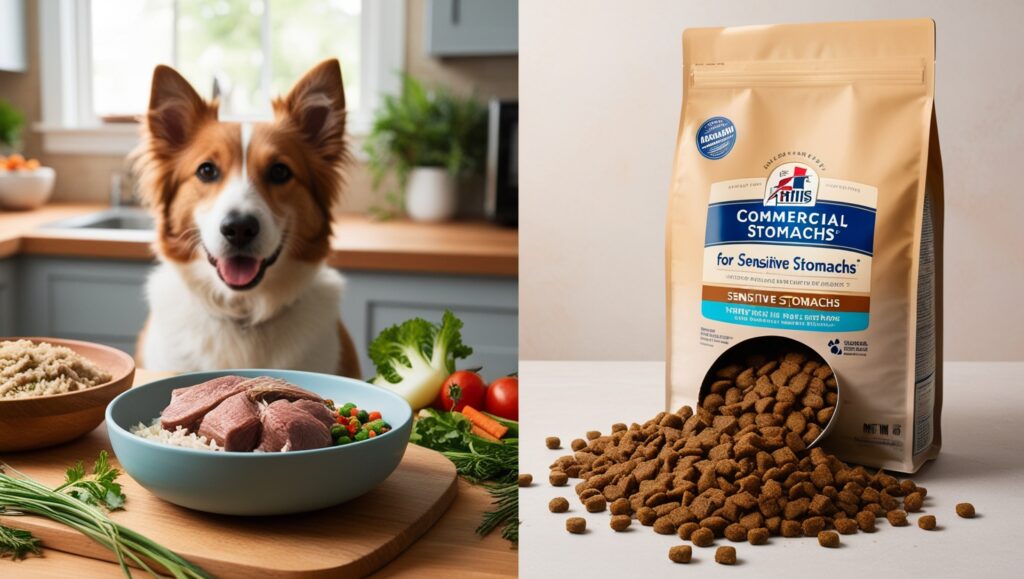
When it comes to feeding dogs with sensitive stomachs, the choice between homemade and commercial food can be tricky. Homemade diets allow for complete control over ingredients. You can tailor meals to avoid allergens and include easily digestible components. On the flip side, commercial dog foods designed for sensitive stomachs often come formulated with specific nutritional needs in mind. They usually contain balanced vitamins and minerals that might be hard to replicate at home without careful planning.
Homemade options may require time and effort but can foster a stronger bond through shared mealtime experiences. Meanwhile, quality commercial brands provide convenience, especially for busy pet owners who still want the best food for dogs with sensitive stomachs. Ultimately, both routes have merits worth considering based on your dog’s unique needs and lifestyle preferences.
Other Tips for Managing a Dog’s Sensitive Stomach
Managing a dog’s sensitive stomach goes beyond choosing the best food for dogs with sensitive stomachs. Regular feeding times can help establish a routine that eases digestion. Portion control is crucial. Feeding smaller, more frequent meals rather than one large meal can minimize stress on their system and improve nutrient absorption.
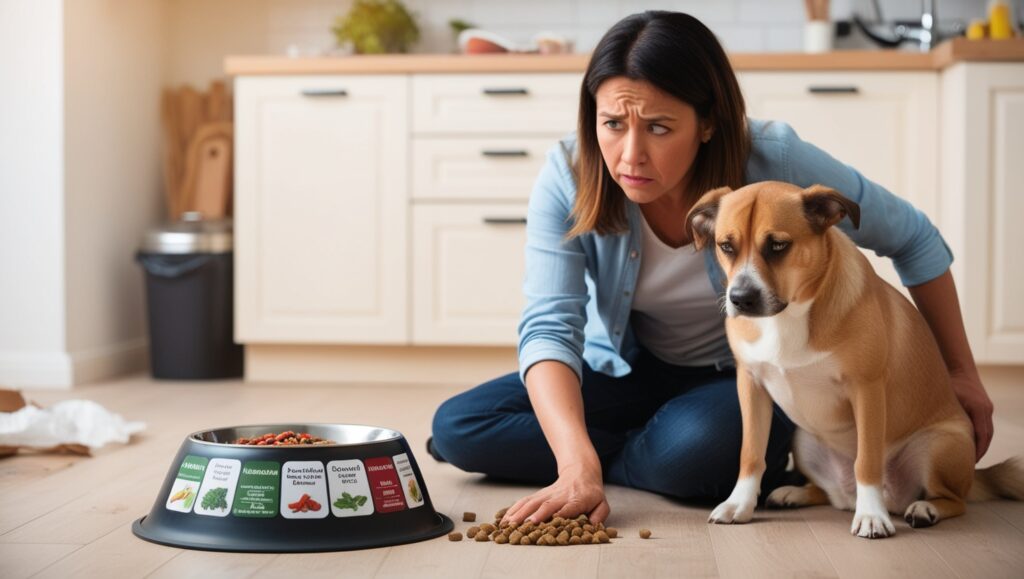
Consider adding probiotics to your dog’s diet. These friendly bacteria support gut health and can mitigate digestive issues over time. Hydration plays a vital role too. Ensure your pup has constant access to fresh water, as dehydration complicates tummy troubles further.
Keep an eye on treats as well; they should be gentle and easy to digest like plain boiled chicken or pumpkin puree. Avoid sudden changes in their diet which might trigger flare-ups of sensitivity. Lastly, monitor your dog for any signs of distress after eating. Keeping track helps identify potential triggers sooner rather than later, leading to better management overall.
Conclusion and Final Recommendations
Managing a dog’s sensitive stomach can be challenging, but the right diet makes all the difference. Choosing the best food for dogs with sensitive stomachs is crucial to ensure their comfort and health. Each dog is unique, so it may take some time to discover what works best for yours.
Always start by introducing new foods gradually. Monitor your dog’s response to each change, whether you’re trying commercial options or homemade recipes. It’s also wise to consult your veterinarian before making any significant dietary changes. They can provide invaluable guidance based on your dog’s specific needs.
Remember that gentle feeding isn’t just about choosing the right ingredients; it’s also about fostering a healthy digestive environment. Keep stress levels low during mealtime and establish a consistent feeding routine.
With patience and attention, you can find a suitable diet that keeps your furry friend happy and healthy. A well-chosen meal plan will support not only their digestion but overall wellness too. Stay observant of changes in behavior or health as you navigate this journey together—your canine companion deserves nothing less than optimal care!







